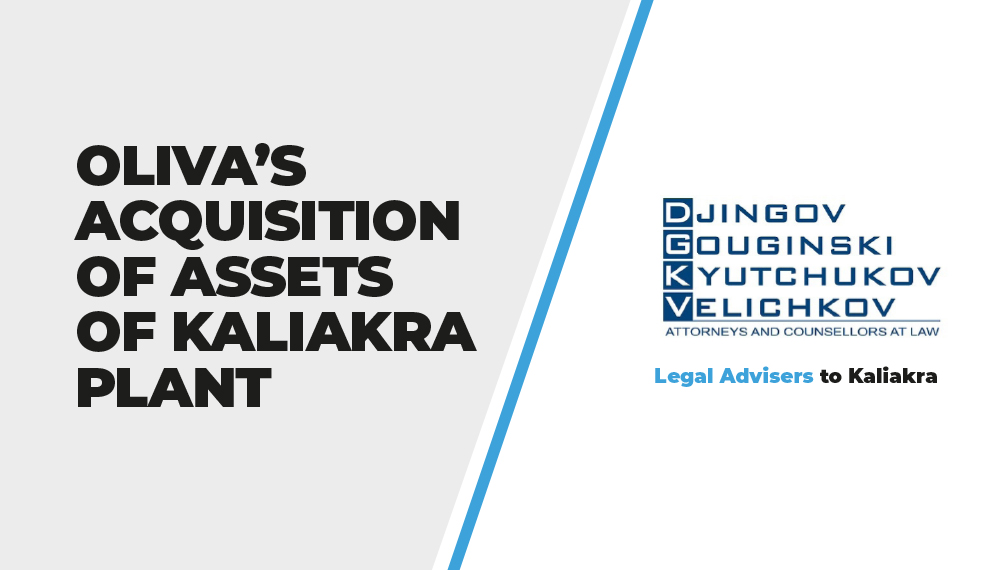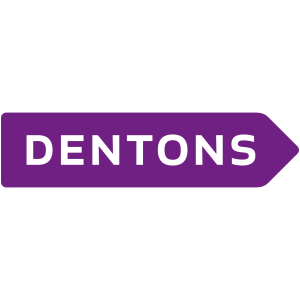The assets include land, equipment, buildings, storage facilities and production facilities. Tokushev and Partners advised Oliva AD, the largest grain trader and oilseeds crusher in Bulgaria, as buyer in the deal.
The sold plant had been owned by the Bulgarian subsidiary of Bungesince 2002. The assets subject to the deal included approximately
140,000 square meters of land and over 85 separate buildings and storage. This expansion has cost Oliva AD an estimate of over USD 2.3 million.
An Interview With Stephan Z. Kyutchukov, Partner at DGKV
Please share your involvement in the deal.
DGKV has been advising the ultimate owner of the seller in this transaction for about 20 years. We started by advising Cereol, later part of the Bunge group, on the acquisition of Kaliakra AD. It came naturally that we were asked by Bunge to advise Kaliakra AD on the asset sale of the Kaliakra sunflower oil seed processing plant based in Dobrich, Bulgaria.
We provided the structuring advice in this deal, as well as conducted the vendor due diligence, with the purpose of procuring proper documentation necessary to demonstrate clear title, zoning and cadastral status of the property.
Not very typical for the role of a vendor counsel, DGKV provided the transaction documentation and kept the master documents throughout the course of negotiations.
We managed the completion process for our client, as well.
What are the things you need to take into account when working on an acquisition like this?
Bulgaria has been a country in transition in many ways over the past few decades. First came the transition from state-owned property to private property, achieved mostly by way of the privatisation of state-owned companies. Then came a deep structural reform of the administrative framework for tracing and registering real estate: the creation of the so called “cadastral system”. As a result, a typical challenge to every asset deal in Bulgaria is making sure that the “detachment” of the sold asset from the formerly existing system of total state ownership is well perfected. Another challenge is to ensure that the actual dimensions and count of the objects of real estate is properly reflected in the cadastral maps. Absent any of these, a transaction might fail for all reasons, business or technical. We structured and navigated the process for a full surveyance of about 100 separate real estate assets comprising the sold plant. In the end, we had the good result which obviously made the asset legally acceptable to buyers.
Otherwise, this rather was a plain-vanilla sale of real estate. Managing the distribution of risks and structuring the sale on an “as is” basis, were key.
What can go wrong in the initial stages?
Failing to pay early attention to legal documentation demonstrating the ownership, zoning and cadastral status of the asset could turn into a deal-breaker. It took us a few months to put in order all of the legal documents. It is not uncommon in Bulgaria that the cadastral system has a distorted reflection of the actual asset condition or that the registries of state ownership still list as state-owned an asset which undoubtedly is private. That is what happens when you change a system not by evolution - as has been the case with Western Europe through the second half of the 20th century -, but by drastic, campaign-style, revolutionary reform, as was the case in Eastern Europe over the last decades. We believe Bulgaria is steadily moving away from that heritage. With every transaction, an asset which still existed in a less-than-perfect status, comes out neat and tidy, ready for future commercial exchange.
How do you ensure all measures are taken to avoid any pitfalls during the beginning stages?
By having a strong team of well educated and very experienced lawyers, putting heart and soul in ensuring the job is well done.
What are your top tips on ensuring a deal closes successfully?
Not necessarily in order of priority: (a) know your asset well, so as to avoid bad surprises when the potential buyer starts asking reasonable questions; (b) know the seller’s interests in the upcoming sale and prepare with a sturdy and balanced risk-distribution structure; (c) pick a worthy notary public from among the available choices and work with them on preparing the transaction, as they may become your best friend or your worst enemy; and, (d) manage the potential buyers’ legal expectations, as a potential buyer might kill a deal due to ill-understood legal implications.
Is there anything else the firm is working on at the given moment?
Our plate is quite full, as the real estate deal-flow seems steady. However, most of these are confidential. We would summarise, it is mostly industrial, office, hotels, healthcare.





















